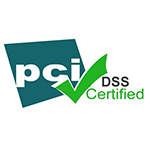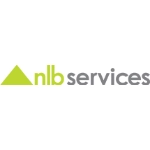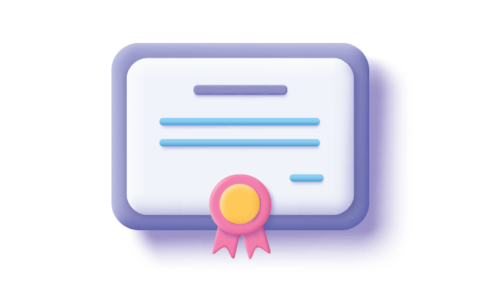© 2025 Next Level Business Services Inc. All Rights Reserved.
Top 10 Final Interview Questions You Need To Be Ready For
By NLB Services
As you prepare for your interview, you wonder and consider the types of questions the interviewer might ask you. While there’s no sure way to pinpoint what question might land on you, there’s surely a way to know what topics can be covered by the interviewer during the session. There are several popular interview questions you can expect from them in your final round of interviews. Here in our blog, we’ve tried to collate a number of final round interview questions that might come your way, and they tend to vary quite a bit depending on the candidate’s profile and experience. But overall, preparing for those commonly asked questions during the final interview doesn’t have to be hard!
What is a final interview?
A final interview doesn’t always guarantee that you’ll get the offer. Instead, it means the company selected you among the final two to five candidates by narrowing down their options from the applications received. As every company’s interview process differs, the interview process and factors also differ. The kind of interview you attend typically depends on the size of the company, the urgency of the role, and the way you perform. For example, an entry-level job doesn’t require many rounds of interviews as compared to a senior-level role.
When you make it to the final interview, you are surely among the top candidates, which the company has scrutinized among the received applications. Out of all the other applicants you may be comparably more experienced or skilled. Companies tend to select 4-5 applicants and conduct a final interview round that determines who is the best fit for the job role, the team, and the company. That’s the reason it is so important to prepare for a final interview
Tips for preparing for a final interview
Top 10 Final Interview Questions You Need To Be Ready For
1. What keeps you motivated?
Employers ask this question to understand your level of self-awareness and ensure that your source of motivation is aligned with the role. To answer this question, be specific, give your real-life examples and support them with real-time examples in sync with the job role.
Let’s say you’ve applied for the role of IT executive, your answer should reflect that you have an interest in technology and keep yourself updated with the tech trends. Helping people through your selfless dedication will be the motivating factor to do more for them.
2. Where do you see yourself in 5 years?
Well, by now you must have researched the company well and have made a plan if this company holds the potential career growth for you. So, if you plan to work in this company for five years, speak about how you envision the same. When the hiring manager asks this question, he/she wants to find out if you’ve set realistic goals for yourself and whether you are ambitious for the position you’ve applied for.
If in the research you do not find the job to possess a lot of future opportunities, you can simply answer the employer back that it is not certain what the future will be like, but you firmly believe that this position will navigate you in the right direction.
3. What tools do you use to do your job?
This is a probable question that a hiring manager may use in the final interview to get information about which tools you use in your day-to-day operations. Discuss what you know already and ask about the tools they use and how many days they take to train new employees.
4. Are you willing to relocate?
This final round of interview questions might seem straightforward but the company’s work demands generally ask for it. Things move fast in a business, some jobs might need your physical presence in the office, and some might not. Candidates who are flexible enough to uproot their entire lives for the company might agree to relocate while some do not.
If you are one of those who can’t relocate, then reiterate your enthusiasm and let the interviewer know the reason behind it. Suggest or ask alternatives if there is any chance of remote work opportunity or any options of showing up to the office once a week.
5. How do you prioritize competing deadlines?
Knowing how to prioritize work affects the project’s success, team engagement, and your responsibilities as the leader. Large projects need clear priorities and pre-determined deadlines. Especially during those projects where every task appears to be priority #1 and requires swift treatment. Prioritization is the process of identifying the level of importance and urgency to complete the task or event. It is a key skill for any professional and absolutely essential for project managers to master. But if you are going on an executive cadre you can always say “I will ask my project manager to set the priorities as he/she is the project pilot”
6. Tell them about a time when you had a conflict with a co-worker and how you handled it
By asking if you ever had a conflict with your subordinates, they want to know if you can work alongside others and if you can get along with other team members.
Think about your past work experiences and highlight those moments where you communicated with your team in disagreement for any point they suggested. Try to narrate how you resolved the disagreement and didn’t let the team spirit suffer.
7. Tell me about a time when you made a mistake at work
Mistakes are proof that you are working. Having said that, you can always answer in the following way- “I sometimes tend to make mistakes in my work and learn from them and my managers and senior project managers as they correct me. Whenever I am in doubt, I consult them and take their opinion. Because I have to master how to tackle complex technical challenges and advance my skills.”
8. Can you share a time when you disagreed with your boss and how you handled it?
Every project involves multiple people to get it completed. When there are more than two people involved in a project, there are chances of differences in ideas and opinions. So, disagreement is part of projects. There were several incidents (speak about incidents) when I disagreed with my manager. But, they showed me the route to clear my doubts and reasons why it was not getting executed.
9. What about our position interests you?
Research the company’s culture and speak about it passionately. Share something that’s truly happening in the company. It will give the interviewer time to believe in your answer and will also give the impression that you have researched the company.
Looking at the professional aspect, make sure you talk about the role and how it will help you to gain more knowledge and experience in your career growth. Don’t fake it. Take time to think about how you’ll respond so that you’re not caught without something to say!
Conclusion
With everything you read above, you now have an idea of what common final interview questions might come to you in the future, and how to answer them in the final round of the interview.
As a next step, practice the answers at home and prepare some questions to ask the employer back about the job role or the company.
Take a look at your resume and the things you have mentioned about projects. Make a note of topics you’ve discussed with them in your previous round of interviews. There might be chances that you’d end up speaking to someone totally new and they might repeat questions you’ve already heard. Do not hesitate to repeat the answer.
When you follow the above-mentioned tips, you will definitely perform better in your final round of interviews and get hired for the job!
All the best!
Talent Solutions








